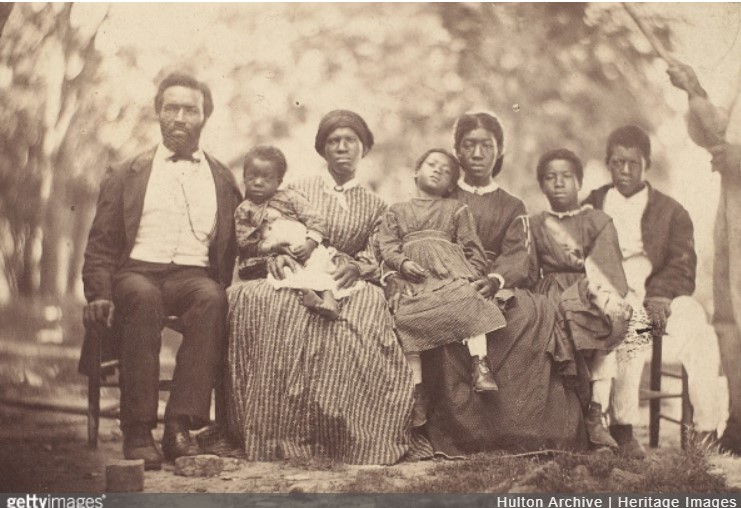It’s an indisputable truth that African Americans are due reparations from the federal government for the unaddressed and still lingering horrors of chattel slavery, lynch mobs, land theft, redlining, Jim Crow, etc. But whether reparations should be to all “Black Americans” or only those who are descendants of American Slaves has proven to be a far more contentious point.
California recently made history by being the first state to form a task force to study and develop reparations for African Americans. After much debate, on March 30, a majority of that task force voted to have the criteria for eligibility for reparations “determined by an individual being an African American descendant of a chattel enslaved person or the descendant of a free Black person living in the US prior to the end of the 19th century.”
Reparations are not meant to solve the issue of white supremacy and anti-blackness.
It’s a significant step for the most populous state in the nation — which also happens to be the world’s fifth-largest economy. But in early April, The Grio writer Michael Harriot penned an article, “Top Ten Reasons Why Lineage Based Reparations Is a Bad Plan” — which we recently debated on Twitter Spaces.
Michael’s not the only person in the Black community to believe lineage-based reparations are a bad thing, so my mission is to make sure arguments against the concept are put to rest. After all, the majority of African Americans, 90% or more, are descendants of enslaved Black folk. We know full well who we are, and guess what? So does the U.S. government.
With that in mind, here are my five arguments (I don’t need 10!) for lineage-based reparations:
1. Lineage-Based Reparations Are Historically Accurate
My ancestors have been in this nation since at least the mid-1700s. Some Black people can trace their roots in North America back further than that. If your ancestor was enslaved by the United States of America or was a “free person of color” at the time of the Civil War, the same way many white Americans from that time period have inherited much wealth, you have inherited a right to the debt that this nation has yet to pay.
As Reparations expert, Duke professor William A. Darity Jr., wrote in The New York Times in September 2021, “First, the government could impose a lineage standard: An individual would need to have at least one ancestor who was enslaved in the United States.” He goes on to explain that “reparations should go to Black American descendants of people enslaved in the United States, including those emancipated at the close of the Civil War and promised 40-acre land grants as restitution for bondage.”
To help figure all this out, H.R. 40, the Commission to Study and Develop Reparation Proposals for African-Americans Act, was first introduced in Congress in 1989 by the late Rep. John Conyers (D-MI). The bill is currently sponsored by Rep. Sheila Jackson (D-TX), but has never been brought to the House floor for a vote.
H.R. 40 calls for the government to formally create a commission to study the effects of slavery on African Americans, as well as “the de jure and de facto discrimination against freed slaves and their descendants from the end of the Civil War to the present, including economic, political, educational, and social discrimination.”
Black folk can’t wait for the U.S. government to decide H.R. 40 is worthy of attention. Other folks have created specific plans for addressing reparations — I recently created one that speaks to the recipients of reparations and includes a dollar amount that Black Americans should be compensated with.
Regardless which plan we go with, most activists, experts, legislators, and other figures involved in pushing for reparations at the federal level make it clear that any Black person, whether enslaved or “free” in the nation at the time of the end of the Civil War would have qualified to receive reparations from the United States of America. Period.
2. Reparations Is NOT a Substitute for Ending Racism or Racial Inequality
Reparations is a payment of a debt that this nation owes to the people whose rights it failed to protect, to whom it was supposed to give the famed “40 acres and a mule” — to whom it was supposed to provide with shelter, food, protection, land, fair wages, and more. Those people are gone, but their descendants are still here.
Let me say this louder for the people in the back and those in the nosebleeds: Reparations are not meant to solve the issue of white supremacy and anti-blackness.

